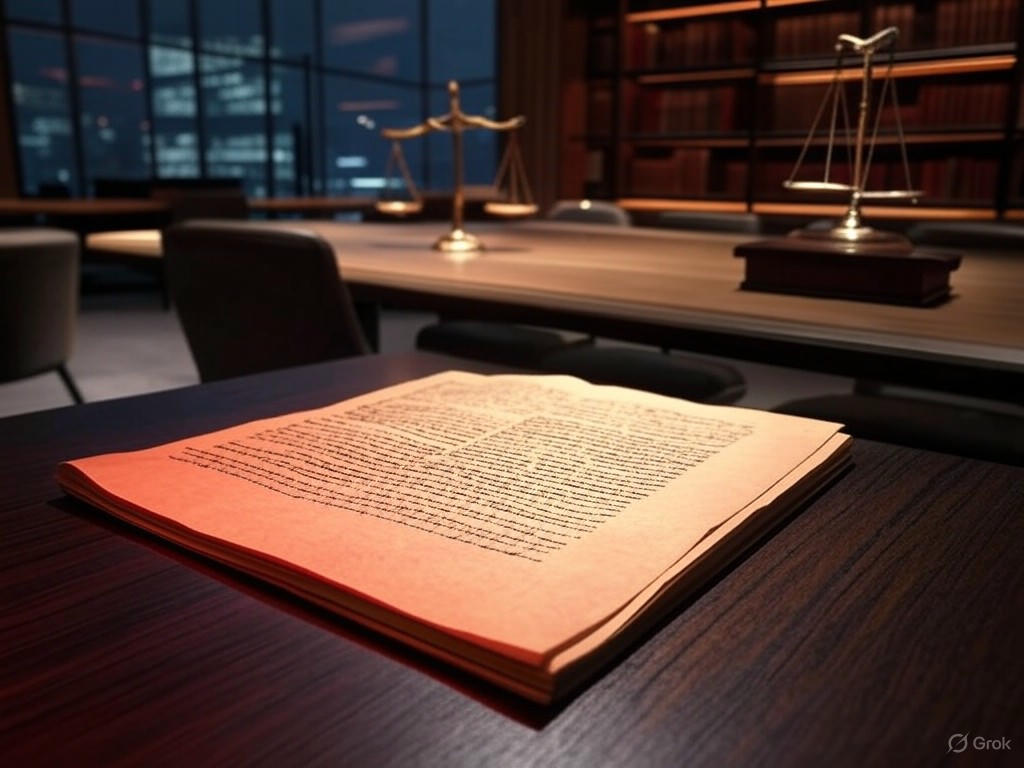
Trump’s Uncertainty on Upholding Constitution Obligations
The Core of Trump Constitution Duties
Former President Donald Trump’s recent statements have sparked intense discussions around the Trump Constitution, particularly his commitment to fundamental principles like due process. In a candid interview at Mar-a-Lago, Trump expressed uncertainty about whether both citizens and noncitizens deserve these core protections, shaking the foundation of what we expect from our leaders. This moment reminds us that the Trump Constitution isn’t just a historical document—it’s a living guide for presidential actions that affect everyday lives.
Think about it: Every president swears to uphold the Constitution, yet Trump’s hesitation hints at a potential shift in how we view these obligations. Legal experts are buzzing, pointing out that this ambiguity could erode public trust in democratic norms. Have you ever wondered how one leader’s words might reshape the rules we’ve relied on for centuries?
Breaking Down Trump’s Comments on Due Process
During that high-profile interview, Trump was directly asked about supporting due process rights for everyone under U.S. law, and his response—”I don’t know”—left many stunned. This ties back to the Trump Constitution, where due process is a non-negotiable pillar designed to ensure fair treatment for all. It’s not just a legal technicality; it’s about protecting individuals from arbitrary power, something that’s been tested throughout American history.
Key Moments from the Discussion
- Trump avoided a clear stance on due process, even as it relates to the broader Trump Constitution framework.
- He brushed off questions about extreme measures, like military actions, amid ongoing policy debates.
- These exchanges came at a time when his decisions faced widespread scrutiny, highlighting tensions in Trump Constitution interpretations.
For instance, imagine a scenario where basic rights are questioned—this isn’t hypothetical; it’s what makes the Trump Constitution so vital. Experts argue that such evasions could set a precedent, making it harder for future leaders to defend these rights without hesitation.
The Vital Role of Due Process in the Trump Constitution
At the heart of the Trump Constitution are the Fifth and Fourteenth Amendments, which guarantee due process as a bedrock of democracy. This means no one should face unfair treatment or lose rights without proper legal proceedings. Trump’s uncertainty challenges this, potentially weakening protections that have safeguarded civil liberties for generations.
Risks of This Uncertainty
- It might erode legal safeguards for citizens and noncitizens alike, directly tied to the Trump Constitution’s intent.
- Marginalized communities, including immigrants, are already feeling anxious about their status under such ambiguity.
- Long-term, this could influence how executives interpret the Trump Constitution, paving the way for more flexible—but riskier—approaches.
Consider a real-world example: During past administrations, due process has protected protesters and defendants. If we downplay it now, what happens next? As citizens, staying informed and engaged is one way to push back against these threats.
Trump’s Vision for Executive Power and the Trump Constitution
Beyond the interview, Trump’s broader policies reflect a rethinking of the Trump Constitution, emphasizing stronger executive control. Initiatives like Project 2025 aim to reshape government structures, such as through “Schedule F” positions, which could politicize the civil service and challenge constitutional checks.
Examining Key Reforms
| Policy Focus | Proposed Change | Link to Trump Constitution |
|---|---|---|
| Civil Service | Introducing “Schedule F” roles | This could undermine merit-based systems, clashing with the Trump Constitution’s emphasis on balanced governance. |
| Diversity and Equity | Pulling back on DEI programs | It promotes a meritocracy but risks conflicting with equal protection under the Trump Constitution. |
| Regulations | A “10-for-1” deregulation plan | While it streamlines operations, it might weaken public safeguards outlined in the Trump Constitution. |
These moves illustrate how the Trump Constitution could be interpreted more flexibly, but at what cost? For everyday people, this means potentially less oversight in areas like environmental protection or worker rights. If you’re concerned, advocating for transparency in policy changes is a practical step forward.
Public Backlash and Effects on Governance
Recent polls show many Americans view Trump’s actions as overreaching, especially when it comes to the Trump Constitution. Legal analysts warn that downplaying due process could encourage executive overreach, threatening the balance of power we cherish.
Reactions from Advocates and Experts
- Civil rights groups are ramping up scrutiny, urging stronger defenses of the Trump Constitution.
- Calls for Congress to step in and reinforce checks and balances are growing louder.
- Communities are mobilizing to reaffirm due process as a non-negotiable right.
What do you think—should we be more vocal about these issues? A quick look at history shows that public pressure has often steered leaders back toward constitutional principles, like during civil rights movements.
The Layers of the Trump Constitution Framework
The Trump Constitution operates within a web of federal and state powers, where the president’s role is to faithfully execute laws and protect rights. His recent comments add layers of complexity, influencing both current policies and future precedents.
What the Trump Constitution Demands from Leaders
- Ensuring laws are executed with integrity, as sworn in the presidential oath.
- Defending against threats to the Constitution, both at home and abroad.
- Upholding rights like due process to maintain equality and justice.
This isn’t just abstract—it’s about real-world application. For example, during crises, strong adherence to the Trump Constitution has prevented abuses of power. Staying educated on these dynamics can empower you to hold leaders accountable.
Future Implications for Civil Rights and Policy
The uncertainty surrounding the Trump Constitution could ripple into areas like civil rights, eroding trust and setting tones for upcoming administrations. It’s not just about one interview; it’s about how we collectively safeguard these principles moving forward.
To counter this, consider simple actions: Vote in elections that prioritize constitutional integrity, or join discussions that promote awareness. Remember, every citizen plays a part in preserving the Trump Constitution’s essence.
Wrapping Up and Looking Ahead
Trump’s ambiguity on upholding constitutional obligations, especially due process, underscores the need for vigilance. As we navigate these debates, let’s commit to reinforcing the Trump Constitution as the backbone of our democracy. Your thoughts matter—what steps can we take together to ensure these rights endure?
If this topic resonates, share your insights in the comments below or explore more on governance and rights. Let’s keep the conversation going and strengthen our shared values.
References
- PBS NewsHour. “Trump says he doesn’t know if he backs constitutional due process rights in new interview.” Link
- CBS News. “Trump’s Project 2025 and first 100 days.” Link
- White House. “Restoring equality of opportunity and meritocracy.” Link
- Holland & Knight. “Trump’s 2025 executive orders chart.” Link
- France 24. “Trump says ‘I don’t know’ if must uphold U.S. Constitution as president.” Link
- Columbia Law Review. “Article on constitutionalism.” Link
- Docketwise. “Blog on legal topics.” Link
- U.S.-China Economic and Security Review Commission. “Hearing transcript.” Link
Trump Constitution, due process rights, presidential obligations, civil rights, constitutional duties, Trump interview, executive authority, governance implications, civil liberties, legal precedent






